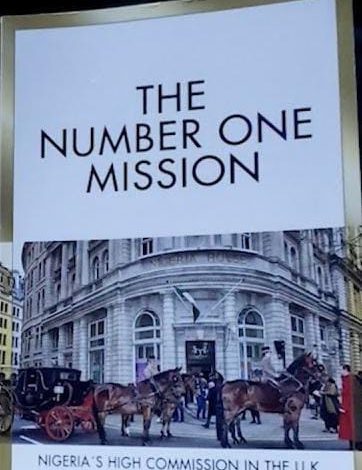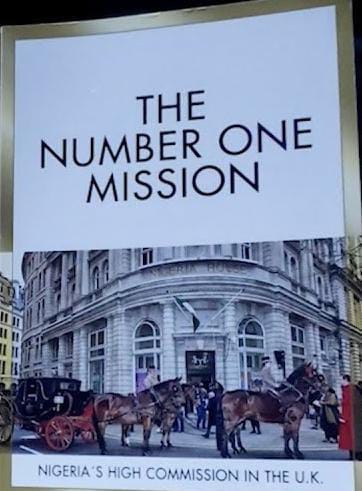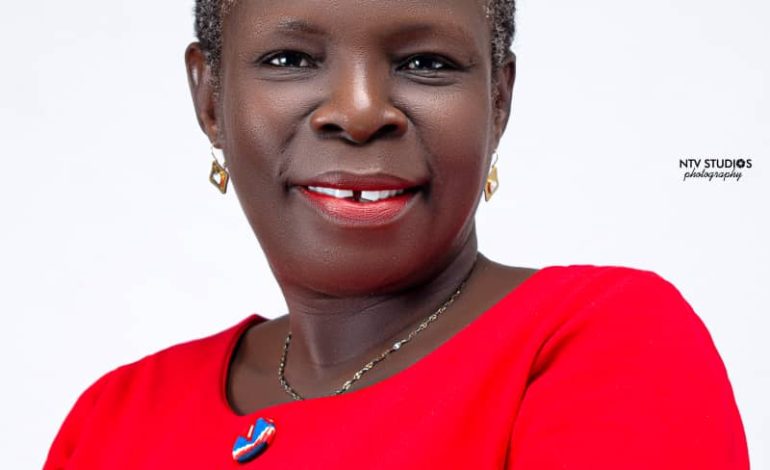‘The Number One Mission’: From London, a tribute to Nigeria

By Wale Okediran
IT is on record that Colonial Nigeria was ruled by the British Empire from the mid-nineteenth century until 1960 when Nigeria achieved independence. To mark this important milestone, Nigeria opened its first diplomatic post, the Nigeria High Commission in London. Since then, Nigeria has maintained strong diplomatic relations with Great Britain, its former colonial master. The post-colonial era has seen the United Kingdom as one of Nigeria’s closest allies. Up till today, no other country has as much influence on Nigeria the way Britain does.
Even though there have been instances of occasional misunderstandings and disagreements between the two countries over certain knotty issues, the fact remains that Britain is Nigeria’s closest friend in Europ till now. It is for the above reasons that a publication such as The Number One Mission that showcases this important historical symbiotic relationship between Nigeria and the UK should be celebrated. The 200-page publication, written by Yemi Edun, a London-based property acquisition consultant and philanthropist, is a reader-friendly compendium of information about Anglo-Nigeria diplomatic relations.
In addition, the book, in a lucid and simple style, examines other important subjects ranging from the history of the Nigerian High Commission in the UK, the properties of the Nigerian High Commission, and topics such as ‘The Vital Role of Diplomacy In Shaping National History’, ‘The Process of Becoming a High Commissioner’ as well as ‘Brief Biographies of Nigeria’s High Commissioners in the UK’ from inception till the present among other important subjects.
In the Foreword to the book, the author says: “My intention in writing the book is twofold; to document our time together and to express my hope for continued improvements. It serves as a record of our experiences, a testament to the progress achieved and a roadmap for the future. Through its pages, I aim to shine a light on the intricacies of diplomacy, the power of collaboration and the significance of the relationships forged in the pursuit of common goals.”

It is obvious that the author has achieved his aims and even more as the unravelling literature in the book reveals. One of this is that in spite of some misgivings about her precolonial relationship with the UK, Nigeria has over the years maintained a very cordial and improved relationship with her former colonial master. It is also on record that although there have been occasional outbursts of misunderstanding and disagreements between both countries, such disagreements have never been allowed to go to the extent of causing protracted diplomatic rupture between them. In the book, not even the cold diplomatic relations that briefly erupted between both countries over the ill-fated attempt at smuggling Alhaji Umaru Dikko from Britain in 1984 could dampen the long and cordial relationship the two countries still enjoy. On the contrary, the book documents the growing socio-economic bonds between the two countries since 1960 when Nigeria became independent.
This development has been as a result of the realization by both countries being partners in progress is more important than anything else. In addition, the list of Nigeria’s High Commissioners from the inception of the High Commission till date as captured in the book confirms the fact that Nigeria’s history is replete with figures of immense stature who have served as our country’s representatives in Great Britain.
The Number One Mission, a beautiful and well produced book with its glossy and elegant pages and beautiful pictures, is a tribute to Nigeria and Nigerians in the UK. Reading this book invariably means having an encounter with two countries which, despite their different cultural backgrounds and occasional diplomatic tiffs, have continued to maintain very cordial relationship. Through their diplomatic skills, emotions and passions, one could discern the indomitable human spirit of the vital role of diplomacy in shaping strong international relations. The author must be commended for writing a historic and an entertaining book.
While the stories and pictures will help elucidate the expected emotions and passions from Nigerians at home and in the diaspora, the accompanying essays will serve as valuable reference materials for scholars, researchers, diplomats laymen alike.
* Dr. Okediran, a writer, is the Secretary General of Pan-African Writers Association (PAWA)



